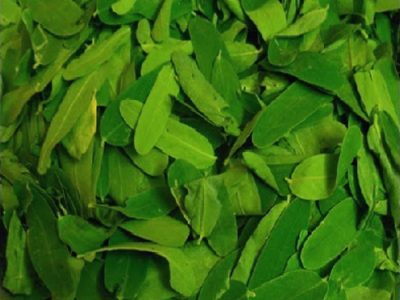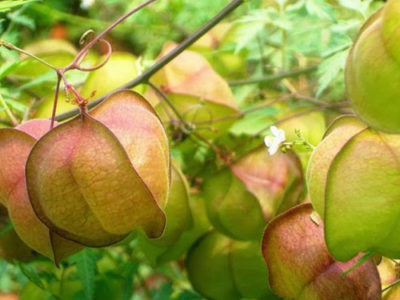
TOP 10 HOMEGROWN VEGETABLES
TOMATO VEGETABLE
1) BENEFIT OF HOMEGROWN TOMATO:
- Superior Flavor: Homegrown tomatoes are renowned for their exceptional taste and aroma. They are often sweeter, juicier, and more flavorful than store-bought varieties because they can be picked at the peak of ripeness.
- Nutritional Value: Tomatoes are rich in essential nutrients, including vitamin C, vitamin K, potassium, and antioxidants like lycopene. Homegrown tomatoes retain their nutritional value better than those that have been transported and stored for extended periods.
- Freshness: You can pick homegrown tomatoes right from the vine when they are at their freshest and most flavorful. This ensures that you enjoy the maximum nutritional benefits.
- Control Over Pesticides: Growing your own tomatoes gives you control over the use of pesticides. You can choose organic or natural pest control methods, reducing your exposure to potentially harmful chemicals.
- Variety Selection: Home gardeners have access to a wide range of tomato cultivars, including heirloom and unique varieties that may not be available in stores. This allows you to experiment with different colors, shapes, and flavors.
- Cost Savings: While there may be some initial setup costs for gardening, growing your own tomatoes can save you money in the long run, especially if you consume tomatoes regularly or grow a substantial quantity.
LETTUCE VEGETABLE
2)BENEFIT OF HOMEGROWN LETTUCE:
- Freshness: Homegrown lettuce is incredibly fresh because you can harvest it when it is at its peak ripeness. This ensures maximum flavor, crispness, and nutritional value.
- Superior Flavor: Homegrown lettuce often has a better, more vibrant flavor compared to store-bought lettuce, which may have been sitting on shelves for some time.
- Nutritional Value: Lettuce is a source of essential nutrients, including vitamins A, C, and K, as well as folate and dietary fiber. Homegrown lettuce retains its nutritional value better than pre-packaged varieties.
- Variety Selection: Home gardeners have access to a wide range of lettuce varieties, including butterhead, romaine, leaf, and more. This allows you to experiment with different textures, colors, and flavors.
- Quick Growth: Lettuce is a fast-growing vegetable, and you can often start harvesting leaves within a few weeks of planting. This makes it an ideal choice for gardeners who want quick results.
- Control Over Pesticides: Growing your own lettuce gives you control over the use of pesticides. You can choose organic or natural pest control methods, reducing your exposure to potentially harmful chemicals.
CUCUMBER VEGETABLE
3)BENEFIT OF HOMEGROWN CUCUMBER:
- Freshness: Homegrown cucumbers are incredibly fresh because you can harvest them when they are at their peak ripeness. This ensures maximum flavor, crispness, and nutritional value.
- Superior Flavor: Homegrown cucumbers often have a better, more vibrant flavor compared to store-bought cucumbers, which may have been transported long distances and stored for extended periods.
- Variety Selection: Home gardeners have access to a wide range of cucumber varieties, including slicers, pickling cucumbers, and specialty types. This allows you to experiment with different colors, shapes, and tastes.
- Nutritional Value: Cucumbers are a good source of vitamins (especially vitamin K and vitamin C), minerals (like potassium and magnesium), and dietary fiber. Homegrown cucumbers retain their nutritional value better than those that have been stored for extended periods.
- Control Over Pesticides: Growing your own cucumbers gives you control over the use of pesticides. You can choose organic or natural pest control methods, reducing your exposure to potentially harmful chemicals.
- Customization: You can tailor your cucumber-growing methods to meet your preferences and values. For example, you can choose organic or sustainable gardening practices.
BELL PEPPER VEGETABLE
4)BENEFIT OF HOMEGROWN BELL PEPPER:
- Superior Flavor: Homegrown bell peppers often have a sweeter and more robust flavor compared to store-bought peppers. You can pick them at the peak of ripeness, ensuring maximum taste and freshness.
- Variety Selection: Home gardeners have access to a wide range of bell pepper varieties, including red, green, yellow, and orange peppers. This allows you to experiment with different colors and flavors.
- Nutritional Value: Bell peppers are rich in vitamins, especially vitamin C, vitamin A, and vitamin B6, as well as dietary fiber and antioxidants. Homegrown bell peppers retain their nutritional value better than those that have been stored or transported for extended periods.
- Control Over Pesticides: Growing your own bell peppers gives you control over the use of pesticides. You can choose organic or natural pest control methods, reducing your exposure to potentially harmful chemicals.
- Customization: You can tailor your bell pepper-growing methods to meet your preferences and values. For example, you can choose organic or sustainable gardening practices.
- Cost Savings: While there may be some initial setup costs for gardening, growing your own bell peppers can save you money in the long run, especially if you consume peppers regularly or grow a substantial quantity.
ZUCCHINI VEGETABLE
5)BENEFIT OF HOMEGROWN ZUCCHINI:
- Superior Flavor: Homegrown zucchini often has a sweeter and more robust flavor compared to store-bought zucchini. You can pick them at the peak of ripeness, ensuring maximum taste and freshness.
- Variety Selection: Home gardeners have access to various zucchini varieties, including green, yellow, and striped varieties. This allows you to experiment with different colors and flavors.
- Nutritional Value: Zucchini is a nutritious vegetable, containing vitamins (such as vitamin C and vitamin A), minerals (like potassium and magnesium), dietary fiber, and antioxidants. Homegrown zucchini retains its nutritional value better than those that have been stored or transported for extended periods.
- Quick Growth: Zucchini is known for its fast growth, and you can often start harvesting within a few weeks of planting. This makes it a great choice for gardeners who want quick results.
- Control Over Pesticides: Growing your own zucchini gives you control over the use of pesticides. You can choose organic or natural pest control methods, reducing your exposure to potentially harmful chemicals.
- Customization: You can tailor your zucchini-growing methods to meet your preferences and values. For example, you can choose organic or sustainable gardening practices.
CARROT VEGETABLE
6)BENEFIT OF HOMEGROWN CARROT:
- Freshness: Homegrown carrots are incredibly fresh because you can harvest them when they are at their peak ripeness. This ensures maximum flavor, sweetness, and crispness.
- Superior Flavor: Homegrown carrots often have a sweeter and more robust flavor compared to store-bought carrots, which may have been sitting on shelves for some time.
- Variety Selection: Home gardeners have access to a wide range of carrot varieties, including different colors and shapes. This allows you to experiment with various culinary options and create colorful dishes.
- Nutritional Value: Carrots are rich in vitamins (especially vitamin A and vitamin K), minerals (like potassium), and dietary fiber. Homegrown carrots retain their nutritional value better than those that have been stored or transported for extended periods.
- Control Over Pesticides: Growing your own carrots gives you control over the use of pesticides. You can choose organic or natural pest control methods, reducing your exposure to potentially harmful chemicals.
- Customization: You can tailor your carrot-growing methods to meet your preferences and values, such as choosing organic or sustainable gardening practices.
RADISH VEGETABLE
- Quick Growth: Radishes are one of the fastest-growing vegetables, typically ready for harvest within a few weeks of planting. This makes them an excellent choice for impatient gardeners or those looking for quick results.
- Freshness: Homegrown radishes are incredibly fresh because you can harvest them when they are at their peak ripeness. This ensures maximum crispness, mildness, and flavor.
- Variety Selection: Home gardeners have access to a wide range of radish varieties, including different shapes, sizes, and colors. This allows you to experiment with various culinary options and create visually appealing dishes.
- Nutritional Value: Radishes are low in calories and a good source of vitamins (especially vitamin C and vitamin K), minerals (like potassium), and dietary fiber. Homegrown radishes retain their nutritional value better than those that have been stored or transported for extended periods.
- Control Over Pesticides: Growing your own radishes gives you control over the use of pesticides. You can choose organic or natural pest control methods, reducing your exposure to potentially harmful chemicals.
- Customization: You can tailor your radish-growing methods to meet your preferences and values, such as choosing organic or sustainable gardening practices.
SPINACH VEGETABLE
8)BENEFIT OF HOMEGROWN SPINACH:
- Freshness: Homegrown spinach is incredibly fresh because you can harvest it when it is at its peak ripeness. This ensures maximum flavor and nutritional value.
- Superior Flavor: Homegrown spinach often has a more vibrant and robust flavor compared to store-bought spinach, which may have been sitting on shelves for some time.
- Nutritional Value: Spinach is a nutrient-rich leafy green, containing vitamins (especially vitamin A, vitamin C, and vitamin K), minerals (such as iron and calcium), fiber, and antioxidants. Homegrown spinach retains its nutritional value better than those that have been stored or transported for extended periods.
- Quick Growth: Spinach is a fast-growing vegetable, and you can often start harvesting leaves within a few weeks of planting. This makes it a great choice for gardeners who want quick results.
- Variety Selection: Home gardeners have access to various spinach varieties, including different leaf shapes and colors. This allows you to experiment with different culinary options.
- Control Over Pesticides: Growing your own spinach gives you control over the use of pesticides. You can choose organic or natural pest control methods, reducing your exposure to potentially harmful chemicals.
GREEN BEANS VEGETABLE
9)BENEFIT OF HOMEGROWN GREEN BEANS:
- Superior Flavor: Homegrown green beans often have a sweeter and more robust flavor compared to store-bought beans. You can pick them at the peak of ripeness, ensuring maximum taste and freshness.
- Nutritional Value: Green beans are a nutritious vegetable, rich in vitamins (especially vitamin C and vitamin K), minerals (like potassium and magnesium), dietary fiber, and antioxidants. Homegrown green beans retain their nutritional value better than those that have been stored or transported for extended periods.
- Quick Growth: Green beans are known for their fast growth, and you can often start harvesting beans within a few weeks of planting. This makes them a great choice for gardeners who want quick results.
- Variety Selection: Home gardeners have access to various green bean varieties, including bush beans and pole beans, as well as different colors and sizes. This allows you to experiment with different types and flavors.
- Control Over Pesticides: Growing your own green beans gives you control over the use of pesticides. You can choose organic or natural pest control methods, reducing your exposure to potentially harmful chemicals.
- Customization: You can tailor your green bean-growing methods to meet your preferences and values, such as choosing organic or sustainable gardening practices.
KALE VEGETABLE
- Nutritional Powerhouse: Kale is one of the most nutrient-dense leafy greens, rich in vitamins (especially vitamin K, vitamin A, and vitamin C), minerals (like calcium and potassium), fiber, and antioxidants. Homegrown kale can retain its nutritional value better than store-bought varieties.
- Superior Flavor: Homegrown kale often has a better, more vibrant flavor compared to store-bought kale, which may have been sitting on shelves for some time. Freshly harvested kale can be exceptionally tasty.
- Variety Selection: Home gardeners have access to various kale varieties, including curly kale, lacinato (dinosaur) kale, and ornamental kale. This allows you to experiment with different textures, colors, and flavors.
- Quick Growth: Kale is a fast-growing leafy green, and you can often start harvesting leaves within a few weeks of planting. This makes it an ideal choice for gardeners who want quick results.
- Control Over Pesticides: Growing your own kale gives you control over the use of pesticides. You can choose organic or natural pest control methods, reducing your exposure to potentially harmful chemicals.
- Customization: You can tailor your kale-growing methods to meet your preferences and values. For example, you can choose organic or sustainable gardening practices.
(Visited 47 times, 1 visits today)













